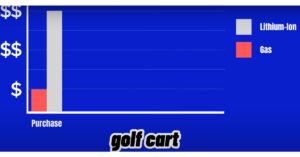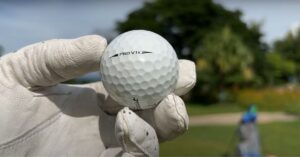are old golf balls worth anything? Answered!
Are old golf balls worth anything? It’s a question that has been asked by golfers for years. While many assume that these balls are nothing more than junk, the truth is that they can actually be quite valuable.
Yes, old golf balls can be worth something depending on the condition and type of ball. Many antique golf balls are highly sought after by collectors and fetch a good price on the market. Even if you don’t have an antique ball, any vintage or used ball could still have some value to it.
So if you’ve been wondering if your old golf balls might be worth something, now is the time to find out! Read on to discover how you can determine the value of your old golf balls and where to sell them for a good price.
Key Takeaways
- Old golf balls can still be used for practice and are often sold in bulk at a discounted rate.
- Golf ball collectors may be willing to pay a premium for rare or vintage golf balls.
- Used golf balls may have value as components in crafts or art projects.
- Check with local second-hand stores, golf courses, and online resellers to find the best deals on used golf balls.
What to Consider When Evaluating Old Golf Balls?
When evaluating old golf balls, there are several factors to consider to determine whether they are still suitable for use or should be discarded.
The condition of a golf ball can significantly impact your performance on the course. Here are some key considerations:
Age
The age of a golf ball is an important factor to consider when determining its suitability for use. Golf balls degrade over time, which can affect their performance.
Older golf balls may lose some of their initial characteristics, such as their compression and elasticity. If a golf ball is several years old, it may not perform as well as a newer one, making it less suitable for competitive play.
Exterior Condition
Inspecting the exterior condition of a golf ball is crucial to assess its overall quality. Look for visible signs of wear and damage, such as scuffs, cuts, cracks, or discoloration.
While minor scuffs and marks may not significantly impact performance, more extensive damage can affect the ball’s aerodynamics and trajectory. Golf balls in good exterior condition are more likely to perform consistently.
Ball Type
Golf balls come in various types, each designed to cater to different playing styles and preferences. It’s essential to ensure that the golf ball type matches your playing style.
Some balls are designed for distance, others for spin control, and some offer a softer feel. The right ball type can significantly impact your game, so choose one that suits your strengths and weaknesses on the golf course.
Compression Rating
Compression rating refers to the stiffness of a golf ball’s core. Golf balls with different compression ratings offer distinct characteristics in terms of feel and distance.
Low-compression balls tend to provide a softer feel and are easier to compress, while high-compression balls are firmer and may offer more distance.
To optimize your performance, select golf balls with compression ratings that align with your desired feel and distance off the tee.
Brand and Model
The brand and model of a golf ball can also affect your game. Different brands invest in unique technologies and designs for their golf balls. Some players may prefer a particular brand or model based on past experiences and performance.
It’s essential to evaluate if the brand and model of the golf ball you’re considering align with your expectations and playing style to maximize your performance on the course.
How to Determine the Worth of Your Used Golf Balls?
Having a collection of used golf balls can be a great way to save money on your golf game. But how do you know which balls are worth keeping and which ones are not?
Determining the worth of your used golf balls can be tricky, but there are some simple steps you can take to make sure you get the most value out of them.
- First, inspect each ball for any visible damage or wear. If there are any deep scratches or chips in the ball, it’s likely not worth keeping.
- Second, check for any manufacturer markings or logos that could indicate the ball is new or from a high-end brand.
- Third, use a magnet to test if the ball is made from steel (if so, it’s likely not worth keeping).
- Finally, if all else fails and you’re still unsure about its value, contact a local pro shop and ask them what they would pay for it.
Where to Find Buyers for Your Old Golf Balls?
Golf balls are a common item that can be found in many households, and they can be expensive to replace. If you’re looking to get rid of some old golf balls, you may be wondering where to find buyers for them.
Fortunately, there are a few different places you can look to find buyers for your old golf balls.
Online Marketplaces
Utilize popular online marketplaces such as eBay, Amazon, or Craigslist to list your old golf balls for sale. These platforms allow you to reach a wide audience of potential buyers.
Golfing Forums and Communities
Join golfing forums and online communities where golf enthusiasts gather. These platforms often have dedicated sections for buying and selling golf equipment, including golf balls. Engage with fellow golfers to find interested buyers.
Social Media
Promote your old golf balls on social media platforms like Facebook, Instagram, and Twitter. Create posts or ads showcasing your golf balls and target golfing groups or pages to reach potential buyers.
Golf Retailers and Pro Shops
Contact local golf retailers and pro shops to inquire if they purchase or consign used golf balls. Some establishments may be interested in buying your old balls to resell to their customers.
Golf Courses
Reach out to nearby golf courses and ask if they have a program for purchasing used golf balls. Some courses collect and resell golf balls retrieved from their hazards, and they may be interested in purchasing additional stock.
Tips to maximize the Value of Your Used Golf Balls
Golfers are always looking for ways to maximize their golf game and one of the best ways to do that is by maximizing the value of your used golf balls.
Used golf balls can be a great way to save money on your golf game while still getting quality balls. Here are a few tips to help you maximize the value of your used golf balls:
- Make sure you inspect each ball before you buy it. Check for any cuts, tears, or other damage that could affect the performance of the ball. If there is any damage, move on and find another ball.
- Buy in bulk when possible. Buying multiple boxes or bags of used golf balls will allow you to get better deals and save more money in the long run.
- Look for special offers from retailers or online stores that offer discounts on used golf balls. Many times these discounts can be quite significant, so make sure to take advantage of them when available!
- Consider buying recycled or refinished balls instead of new ones if possible as they will cost significantly less than new ones but still provide excellent performance on the course.
FAQs
Are antique golf balls collectible?
Yes, antique golf balls can be highly collectible depending on the age and condition of the ball. Many collectors seek out rare and unique golf balls from the past, such as those made of gutta-percha or early rubber core designs.
How much are vintage golf balls worth?
The value of vintage golf balls depends on a variety of factors, including age, condition, rarity, and brand. Generally speaking, a single vintage ball can range in price from several dollars to several hundred dollars depending on its characteristics.
What is the oldest known golf ball?
The oldest known surviving golf ball dates back to 1618 and was found in an archaeological dig at St Andrews Links in Scotland. The ball is made of leather with a hand-stitched pattern of feathers inside and is believed to have been used by King James VI during his reign as King of Scotland from 1567-1625.
How do you clean old golf balls?
Old golf balls should be cleaned with warm water and mild soap using a soft cloth or brush to gently scrub away dirt or debris without damaging the surface or finish of the
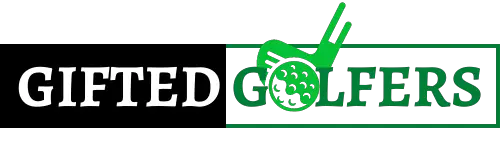

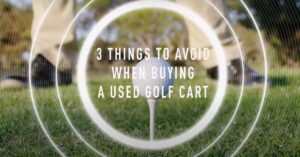
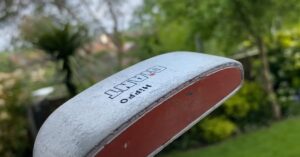
![Can you negotiate golf cart prices? [Master the Art of Negotiation] Untitled design (28)](https://giftedgolfers.com/wp-content/uploads/2023/08/Untitled-design-28-300x157.jpg)
